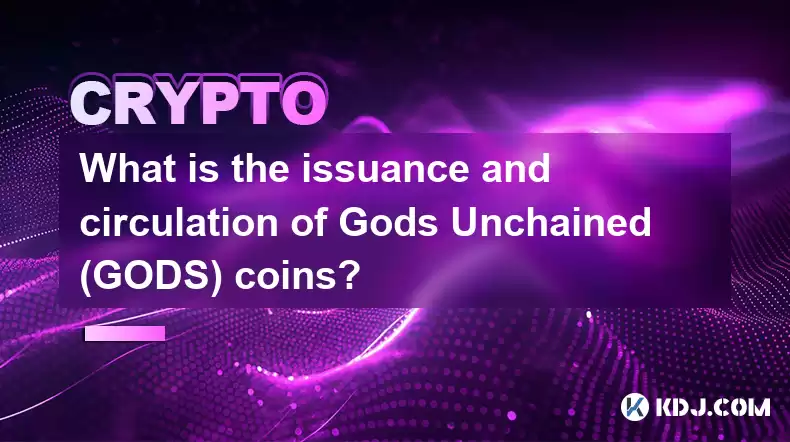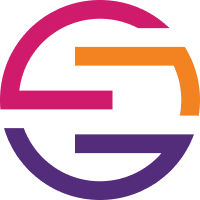-
 Bitcoin
Bitcoin $119000
-2.21% -
 Ethereum
Ethereum $4315
1.01% -
 XRP
XRP $3.151
-3.11% -
 Tether USDt
Tether USDt $0.0000
0.00% -
 BNB
BNB $808.5
-0.71% -
 Solana
Solana $175.8
-4.21% -
 USDC
USDC $0.9999
0.00% -
 Dogecoin
Dogecoin $0.2250
-3.92% -
 TRON
TRON $0.3469
1.77% -
 Cardano
Cardano $0.7818
-3.81% -
 Chainlink
Chainlink $21.47
-2.10% -
 Hyperliquid
Hyperliquid $43.30
-6.81% -
 Stellar
Stellar $0.4370
-2.84% -
 Sui
Sui $3.682
-4.40% -
 Bitcoin Cash
Bitcoin Cash $590.8
2.67% -
 Hedera
Hedera $0.2484
-5.20% -
 Ethena USDe
Ethena USDe $1.001
0.00% -
 Avalanche
Avalanche $23.10
-4.29% -
 Litecoin
Litecoin $119.2
-3.96% -
 Toncoin
Toncoin $3.409
0.90% -
 UNUS SED LEO
UNUS SED LEO $9.016
-1.29% -
 Shiba Inu
Shiba Inu $0.00001304
-3.82% -
 Uniswap
Uniswap $11.18
1.33% -
 Polkadot
Polkadot $3.913
-3.51% -
 Cronos
Cronos $0.1672
-3.08% -
 Dai
Dai $1.000
0.02% -
 Ethena
Ethena $0.7899
-4.70% -
 Bitget Token
Bitget Token $4.400
-1.23% -
 Pepe
Pepe $0.00001132
-5.93% -
 Monero
Monero $257.9
-6.44%
What is the issuance and circulation of Gods Unchained (GODS) coins?
The Genesis Auction, which raised over $14.2 million, distributed 70 million GODS tokens (20% of total supply) to participants in exchange for Wrapped Ethereum (WETH).
Dec 25, 2024 at 05:50 pm

Key Points:
- Genesis Auction:
- Distribution and Tokens:
- Tokenomics and Inflation:
- Tokenomics:
- Community Governance:
- Play-to-Earn and Staking:
- Coin Price Analysis and Performance:
Genesis Auction
GODS token issuance began with a Genesis Auction in February 2021. The auction distributed 70 million GODS tokens, representing 20% of the total supply, across three sale periods.
Participants used Wrapped Ethereum (WETH) for contributions. The auction raised over $14.2 million and made GODS tokens widely available in the market.
Distribution and Tokens
GODS coin distribution is as follows:
- Genesis Auction: 20%
- Private Sale: 10%
- Investment Fund: 5%
- Foundation: 5%
- Team and Advisors: 5%
- Ecosystem Development: 10%
- Community Rewards: 20%
- Gameplay and Rewards: 25%
The total supply of GODS is 500 million tokens. The distribution ensures a diverse token holder base and avoids concentration within a small group of investors.
Tokenomics and Inflation
GODS employs a capped supply model, with a maximum of 500 million tokens. The issuance rate of new tokens is controlled through gameplay and reward mechanisms.
New tokens are minted and distributed through various in-game activities, such as forging cards, winning matches, and completing quests. This structure balances inflation with incentivizing player engagement.
Tokenomics
GODS tokenomics play a crucial role in the ecosystem:
- Governance: GODS holders have voting rights on platform improvements and the allocation of funds for ecosystem development.
- Play-to-Earn: Gameplay rewards are distributed in GODS, incentivizing user participation and skill-based competition.
- Staking: Users can stake GODS to earn additional rewards, support the network, and qualify for rare card drops.
- Deflationary Mechanisms: Forging cards consumes GODS tokens, removing them from circulation and creating a deflationary pressure.
Community Governance
GODS holders participate in a decentralized governance system known as the Forge Council. The council is responsible for overseeing the implementation of strategic decisions and the allocation of community funds.
Community members can submit proposals and vote on issues, ensuring that the development and management of the Gods Unchained platform reflect the desires of the GODS token holders.
Play-to-Earn and Staking
Play-to-earn and staking are key aspects of GODS tokenomics:
- Play-to-Earn: Players are rewarded in GODS for winning matches, completing quests, and forging cards. This rewards skill and participation, creating incentives for active engagement.
- Staking: GODS holders can stake their tokens to earn rewards, support network security, and qualify for rare card drops. This provides additional streams of income for HODLers and helps ensure the stability of the Gods Unchained ecosystem.
Coin Price Analysis and Performance
GODS coin price has exhibited volatility since its launch in 2021. The token has reached highs of over $8 and lows of around $1. Several factors influence price, including market sentiment, adoption rate, and in-game developments.
GODS coin performance is sensitive to news and announcements regarding Gods Unchained platform updates and community governance initiatives. Strong adoption and ecosystem growth can drive demand for the token, boosting its value.
FAQs
How do I purchase GODS tokens?
- GODS tokens are available on various cryptocurrency exchanges, including Binance, Coinbase, and Kraken.
What is the max supply of GODS?
- The max supply of GODS is capped at 500 million tokens.
Can I earn GODS tokens in-game?
- Yes, players can earn GODS through gameplay rewards, such as winning matches, completing quests, and forging cards.
Where can I stake GODS tokens?
- GODS tokens can be staked on the official Gods Unchained website or through supported cryptocurrency wallets.
What are the future plans for GODS?
- Gods Unchained has ambitious plans for future development, including the launch of new game modes, card expansions, and interoperability with other digital assets and ecosystems.
Disclaimer:info@kdj.com
The information provided is not trading advice. kdj.com does not assume any responsibility for any investments made based on the information provided in this article. Cryptocurrencies are highly volatile and it is highly recommended that you invest with caution after thorough research!
If you believe that the content used on this website infringes your copyright, please contact us immediately (info@kdj.com) and we will delete it promptly.
- Japan, Bitcoin, and Treasuries: A New Era of Corporate Finance?
- 2025-08-12 18:30:12
- Bitcoin Bull Market: Decoding the Indicators for the Next Big Move
- 2025-08-12 18:30:12
- Do Kwon's Terra Collapse: From 'Not Guilty' to Guilty Plea?
- 2025-08-12 18:50:12
- Material Efficiency, Traceability, and Trust: The New Pillars of Sustainability
- 2025-08-12 18:50:12
- Do Kwon's Potential Guilty Plea: A New Chapter in the TerraUSD Crypto Collapse Saga
- 2025-08-12 18:55:12
- Bitcoin, Holdings, and the Smarter Web: A New Era of Digital Finance
- 2025-08-12 18:55:12
Related knowledge

How to purchase Aragon (ANT)?
Aug 09,2025 at 11:56pm
Understanding Aragon (ANT) and Its PurposeAragon (ANT) is a decentralized governance token that powers the Aragon Network, a platform built on the Eth...

Where to trade Band Protocol (BAND)?
Aug 10,2025 at 11:36pm
Understanding the Role of Private Keys in Cryptocurrency WalletsIn the world of cryptocurrency, a private key is one of the most critical components o...

What is the most secure way to buy Ocean Protocol (OCEAN)?
Aug 10,2025 at 01:01pm
Understanding Ocean Protocol (OCEAN) and Its EcosystemOcean Protocol (OCEAN) is a decentralized data exchange platform built on blockchain technology,...

How to invest in Kyber Network Crystal v2 (KNC)?
Aug 12,2025 at 05:21pm
Understanding Kyber Network Crystal v2 (KNC)Kyber Network is a decentralized liquidity hub built on the Ethereum blockchain that enables instant token...

Where can I buy UMA (UMA)?
Aug 07,2025 at 06:42pm
Understanding UMA and Its Role in Decentralized FinanceUMA (Universal Market Access) is an Ethereum-based decentralized finance (DeFi) protocol design...

What exchanges offer Gnosis (GNO)?
Aug 12,2025 at 12:42pm
Overview of Gnosis (GNO) and Its Role in the Crypto EcosystemGnosis (GNO) is a decentralized prediction market platform built on the Ethereum blockcha...

How to purchase Aragon (ANT)?
Aug 09,2025 at 11:56pm
Understanding Aragon (ANT) and Its PurposeAragon (ANT) is a decentralized governance token that powers the Aragon Network, a platform built on the Eth...

Where to trade Band Protocol (BAND)?
Aug 10,2025 at 11:36pm
Understanding the Role of Private Keys in Cryptocurrency WalletsIn the world of cryptocurrency, a private key is one of the most critical components o...

What is the most secure way to buy Ocean Protocol (OCEAN)?
Aug 10,2025 at 01:01pm
Understanding Ocean Protocol (OCEAN) and Its EcosystemOcean Protocol (OCEAN) is a decentralized data exchange platform built on blockchain technology,...

How to invest in Kyber Network Crystal v2 (KNC)?
Aug 12,2025 at 05:21pm
Understanding Kyber Network Crystal v2 (KNC)Kyber Network is a decentralized liquidity hub built on the Ethereum blockchain that enables instant token...

Where can I buy UMA (UMA)?
Aug 07,2025 at 06:42pm
Understanding UMA and Its Role in Decentralized FinanceUMA (Universal Market Access) is an Ethereum-based decentralized finance (DeFi) protocol design...

What exchanges offer Gnosis (GNO)?
Aug 12,2025 at 12:42pm
Overview of Gnosis (GNO) and Its Role in the Crypto EcosystemGnosis (GNO) is a decentralized prediction market platform built on the Ethereum blockcha...
See all articles

























































































